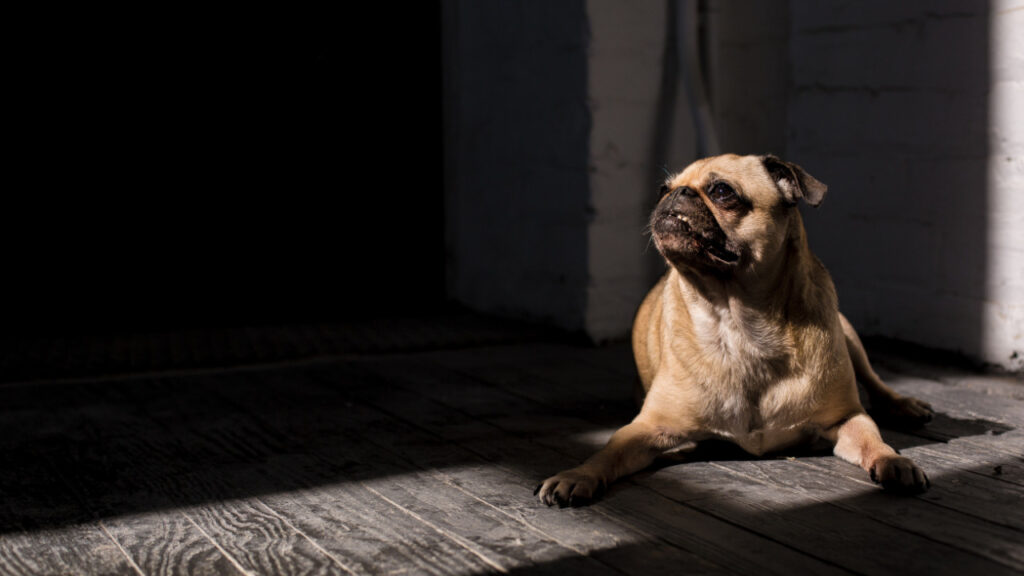Why has my senior dog started to pant, pace and whine at night?

This type of behaviour at night often indicates anxiety and is unfortunately a fairly common problem in aged dogs. It’s thought that failing senses such as eyesight and hearing make these guys more disoriented in darkness or dim light.
It can also be due to a condition called Canine Cognitive Dysfunction (brain ageing), other medical conditions or even possibly an attention seeking behaviour (a normal sleep wake cycle where they’ve learnt that whimpering gets attention).
A discussion with a vet would be a great place to start, and as soon as you start noticing their behaviour change. The vet may recommend a blood and urine test as these tests are a great way to assess your dog’s base health. Medical causes of the behaviour change need to be ruled out or diagnosed so that a tailored program based your pets’ specific issues can start.
When anxiety is contributing the following may help:
- have a night light where they sleep
- establish a daily routine with a crate where it is enjoyable by using feeding toys such as Kongs or treats to create positive associations. Ensure they can walk in and out when they please. When they are comfortable with the crate you can also start to use it at night.
- consider baby-gating a room where your dog feels safe and happy. Pop down some pee pads, just in case.
- increase daily activity and play (in a safe way depending on your dogs fitness and joint health) so that they are worn out after a bid day
- if its cold you could consider a jacket for warmth
- Thundershirts (fitted shirt) as a calming solution
- DAP – dog appeasing pheromone. This is a safe plug in device that you can out in an outlet where your pet sleeps to promote calm.
But it’s important to remember if you see a behavioural change in your buddy, seek out veterinary advice. Our Australian vets are online 24/7.